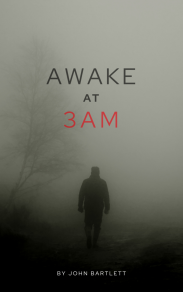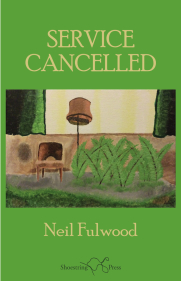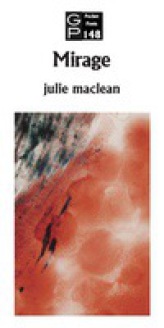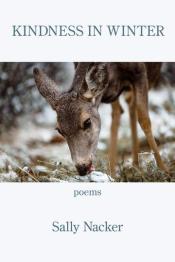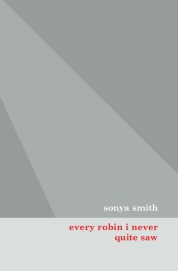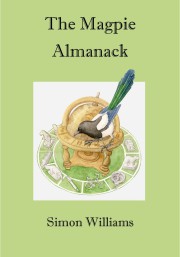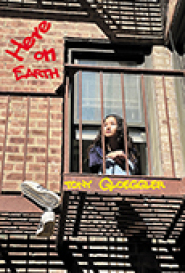
John Bartlett, Awake at 3 a.m.
I lie Down
At night I lie down
and dream of love,
wrapped tight
in the muscled arms of men.
On crowded railway platforms
men with olive skin
smile at me with green eyes.
In low-lit back streets
men in linen suits
pass me messages,
written on café napkins,
stained with red wine
or is it blood?
A man with hair alive
like electric snakes
passes close to me,
touches my elbow, then
stands in a doorway waiting,
his breath on my neck.
Men stamped with tattoos
of skulls and knives
whisper in my ear words
that can never be understood.
Love is a perilous country.
Innuendo lurks everywhere.
I still remember the orange sunlight
scorched in strips across white sheets
and your limbs arranged
an impassable mountain range,
the humid air carrying promises
of kisses more articulate than words
Each night I lie down expecting.
Neil Fulwood, Service Cancelled
Symptom
Drunk and in charge
of an iPad: the only symptom
you exhibited during the quarantine.
the maudlin Facebook posts,
the middle-aged embarrassment
you made of yourself on TikTok.
The things you ordered online.
The delivery vans growling to a stop,
the rat-a-tat-tat door knocks,
the parcels left on the welcome mat
and you raising a puzzled hand
to another retreating driver,
wondering
what the hell you bought this time.
Julie Maclean, Mirage: a journey into the red heart
String Theory in the Outback
from my rooftop cot
engines of a plane drawl north
breaking the loneliness
of constellations
my own separations
and connections
I hear sounds about
the tent a dingo
trying her luck
and when I go to piss
a salt bush shivers
but as soon as I disappear
under canvas again
she is back
searching for crumbs
random scatterings
like black holes
across the cosmos
Sally Naker, Kindness in Winter
Saying Goodbye
If my heart arrests, let it keep arresting.
I kept thinking of your willed words
as I walked one last time that spring
to your summerhouse. Birds
hopped and sang in the thickets on either side
of Veery Lane. The green
world trembled so bright I cried.
At the end of the long lane
the small, screened-in wood
house stood. Something fluttered inside it
like a large moth, or could
it be a bird, I thought
as I came closer. I saw then—
its nervous movement through the screen—
a little brown house wren.
I propped the door open between
the green world and the world inside,
stepped in, and drew
close to the frightened thing, tried
to guide it toward and through
the opening. I could tell
the wren’s small heart was beating
wildly, could see its little eyes, so gentle.
Then off it flew into the trembling.
Sonya Smith, Every Robin I Never Quite Saw
Sonnet for a twelve year old
My daughter’s childhood just fell from the sky.
No damage to see, its wings still unfold;
a marsh tit, on the road’s white middle line,
its head gently lolls in my hands as it’s rolled,
each feather inspected, edge, barb, row.
I smooth the black crest, close a shining eye,
can see clearly how the air must’ve flowed
beneath her, how it could be trapped inside;
warmed – a secret in the cold of the night.
I hear song, blown bright through tiny spaces.
Now blood is allowed to seep from my child;
do the work of women, leave womb traces,
so she brings down birds and tears from the sky,
mourns them, transforms them, relearns how to fly.
Simon Williams, The Magpie Almanack
Naming Them
A four-foot box, a foot for every year
Seamus Heaney
Nicholas and Alexandra,
because she read Dr Zhivago,
along with Valley of the Dolls and Peyton Place.
Elizabeth and Robert;
she would quote them on occasion
and was fond of King Charles Spaniels.
Abelade and Héloise
would be too la-di-da intellectual;
a sight too French and monks and nuns.
Jack and Jill, perhaps,
because the names had yet to be firmed up,
too soon for a visit to the Registry.
Perhaps she asked her sisters
or her brothers for suggestions, or had
scoured a small red book of names.
Whatever she may have called them,
they were the twins through all the time I knew her,
came and went two years before my birth.
I never caught her crying over photos
with a glass of wine. By Heaney’s measure, they would
have fitted in a case of Reisling, in no time.
